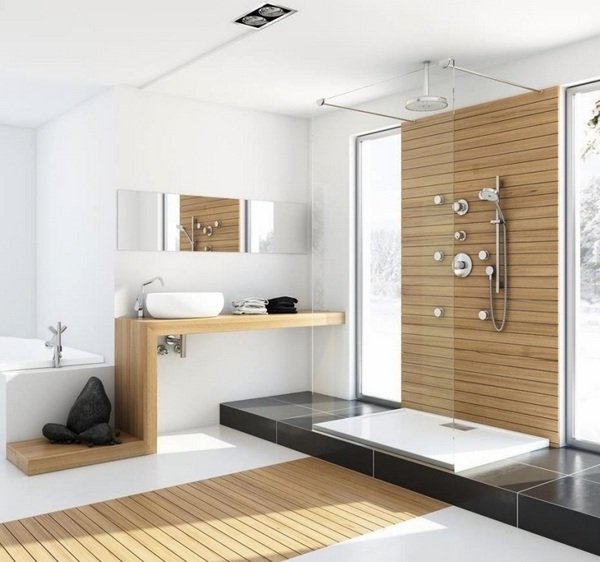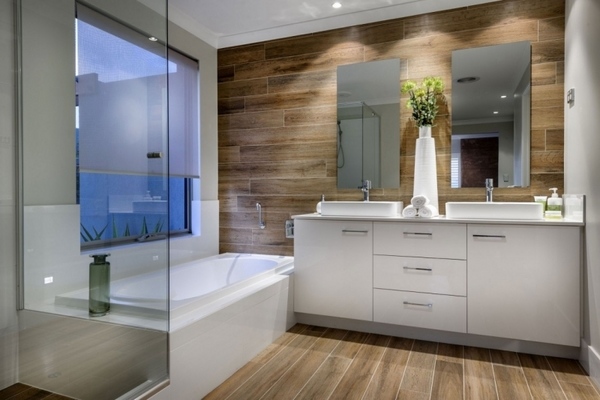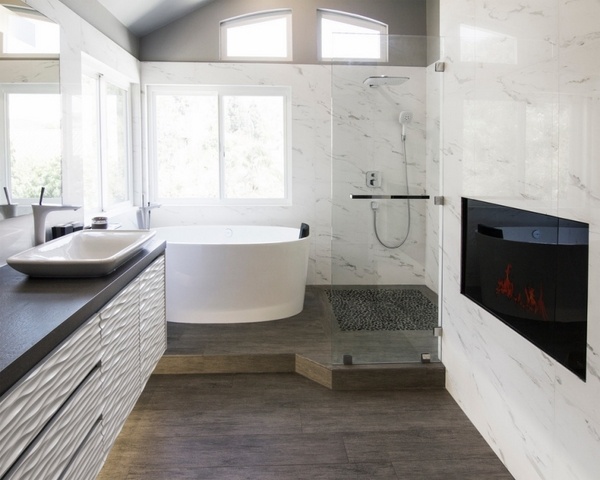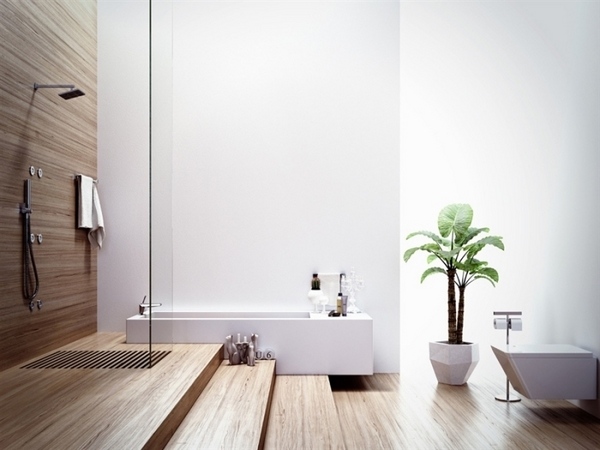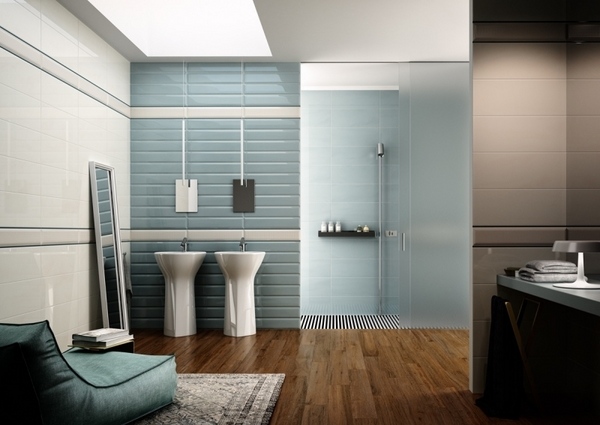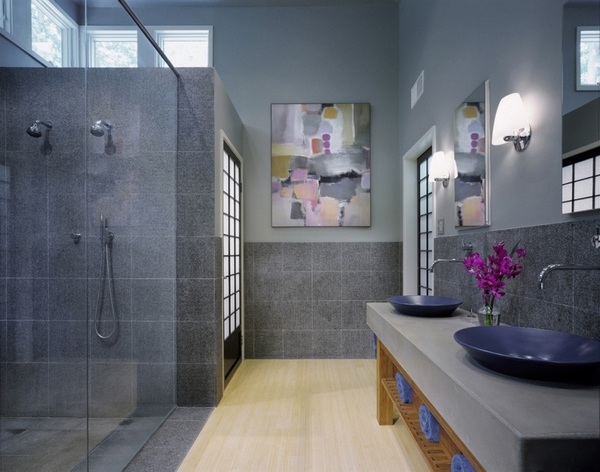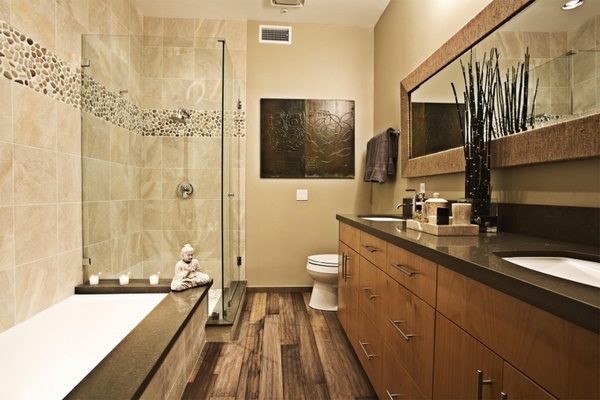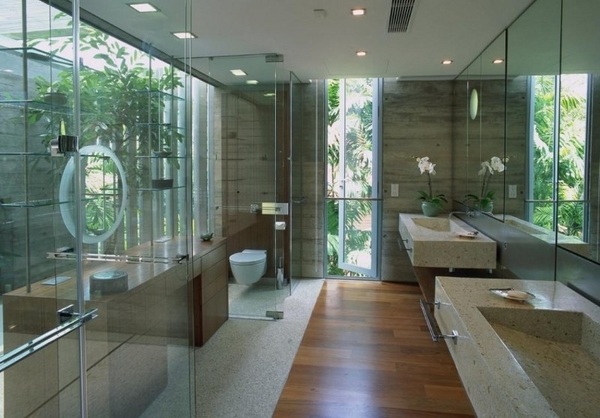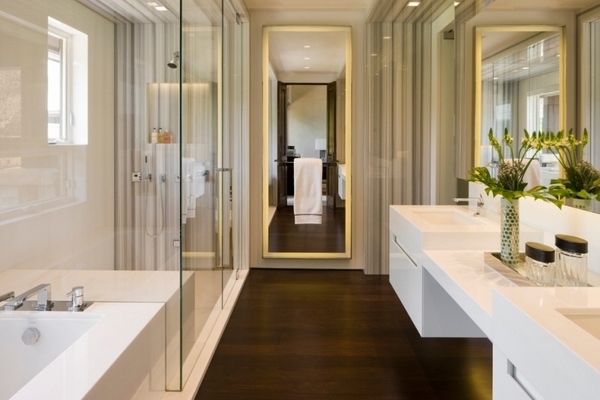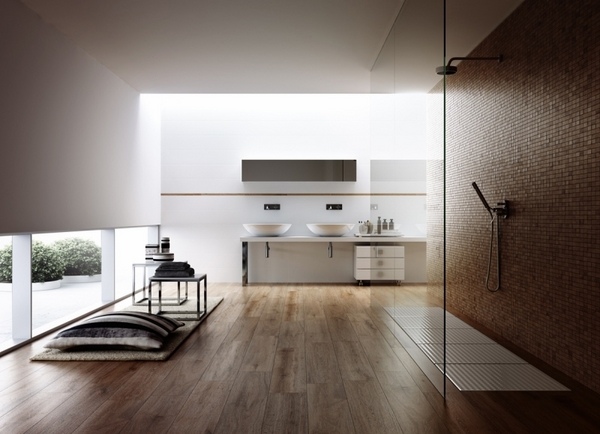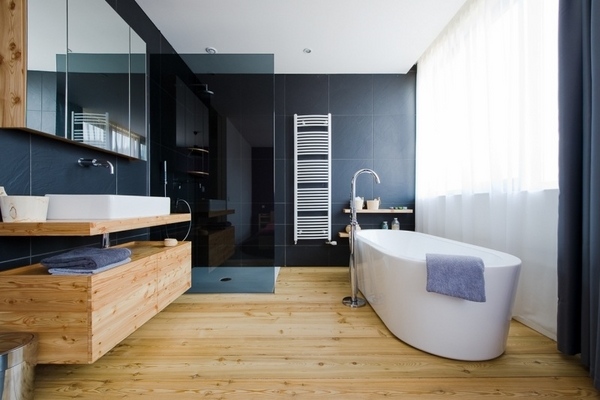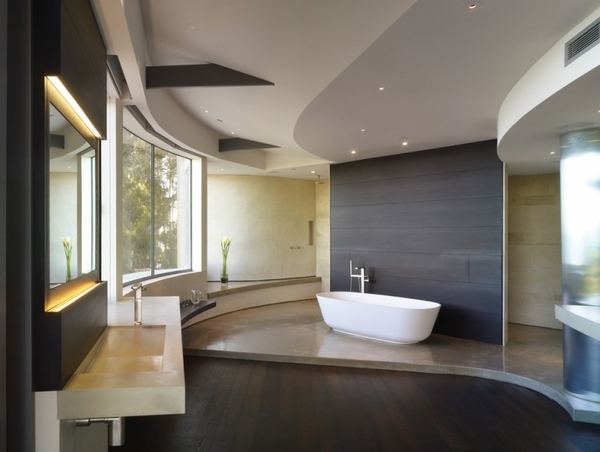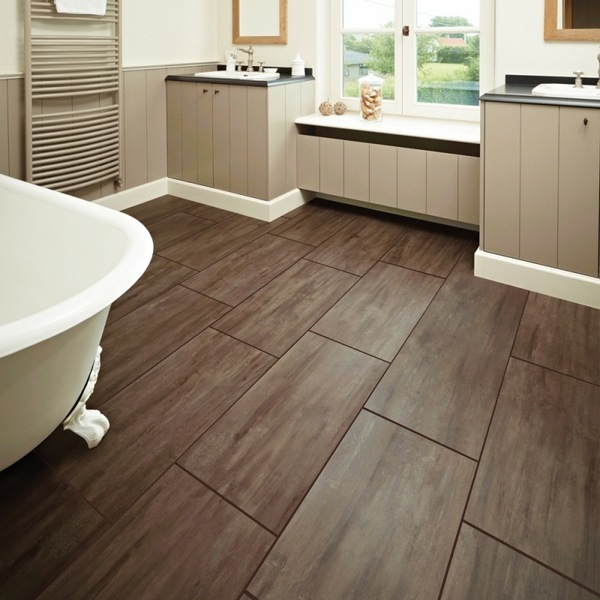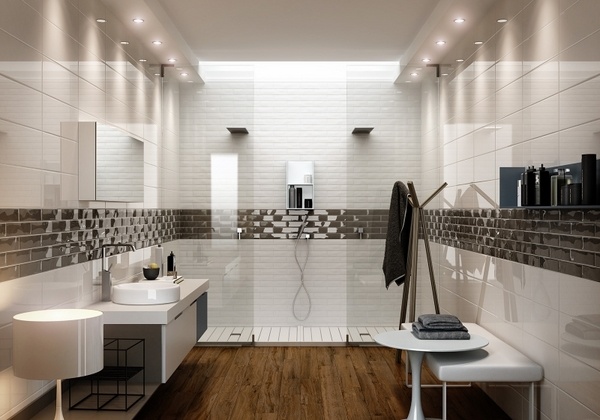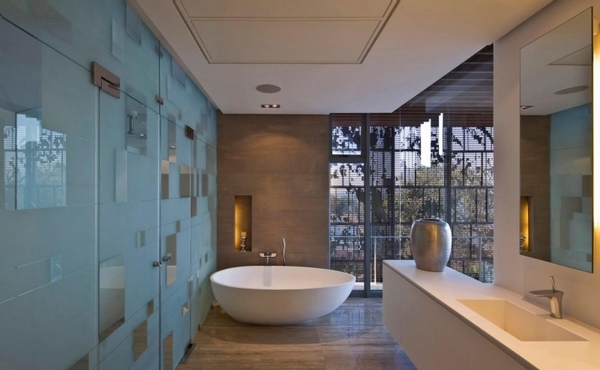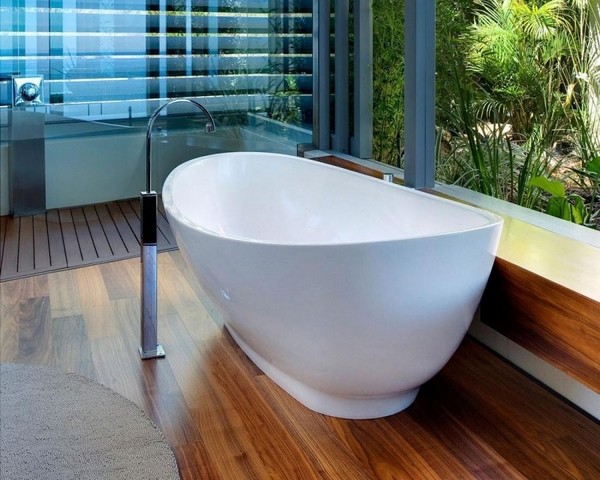
Wood is a natural material that conveys warmth and coziness in the room. Thanks to its pleasant feel, it is particularly suitable for use in barefoot areas. In addition, a wood flooring in the bathroom has a special charm. Which species are suitable for a bathroom, is floor heating possible and how is the flooring installed and maintained – we will give you the answers below.
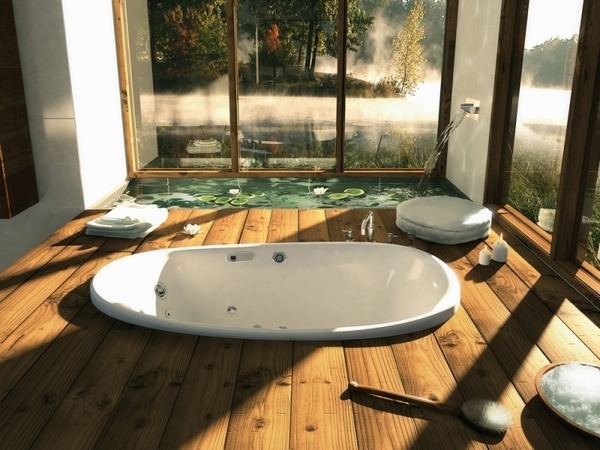
It was believed that wood and water do not work together but nowadays that is no longer true. The wooden boards are waterproof, treated with a special sealing or with natural oil and are suitable for use in wet areas. Hardwoods are more advantageous – species such as beech, oak, walnut, Canadian maple or exotic tropical woods such as teak, kwila and acacia react less to fluctuations in humidity and are less sensitive to water. These species swell less and therefore are more suitable for use in wet areas.
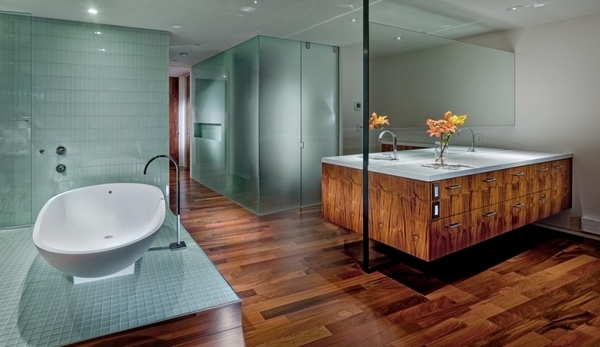
The basic principle – a wooden floor can withstand humidity up to 60% and remains permanently durable at an average temperature of 23 degrees in the bathroom. Areas with moisture, for example, the shower area in the bathroom should be tiled. An important factor for the durability and the long life of the wood flooring in the bathroom is the constructive protection – it is always recommended that wood comes into contact with wet areas as least as possible.
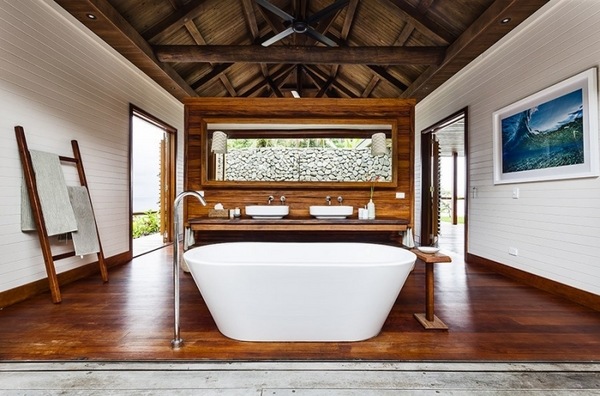
A wooden floors in the bathroom must be installed by professionals. Usually the wooden floor is glued to the subfloor and the joints and edges are sealed with elastic grout. In addition, often the tiles are pre-treated with natural oil at the factory which prevents water from entering through cracks in the floor. The surface requires a regular maintenance – two to three times a year the floor should be treated with wax or natural oil. Paint is not recommended. Otherwise, wood floors in bathrooms are easy to care for – the good ventilation in the room regulates the humidity. Dust can be wiped or vacuumed. Water splashes should be removed as quickly as possible – so the floor will last longer and does not swell.
